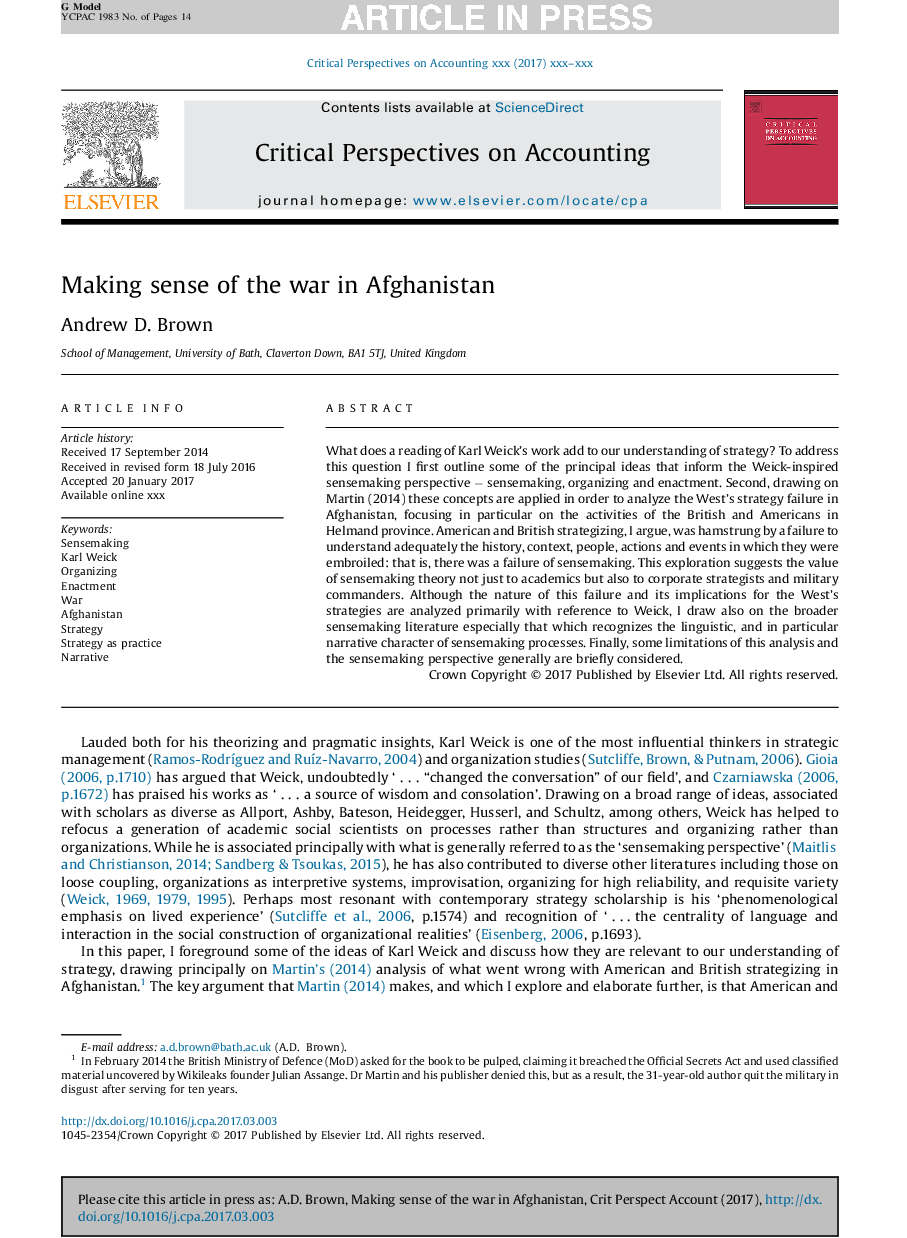| Article ID | Journal | Published Year | Pages | File Type |
|---|---|---|---|---|
| 7411920 | Critical Perspectives on Accounting | 2018 | 14 Pages |
Abstract
What does a reading of Karl Weick's work add to our understanding of strategy? To address this question I first outline some of the principal ideas that inform the Weick-inspired sensemaking perspective â sensemaking, organizing and enactment. Second, drawing on Martin (2014) these concepts are applied in order to analyze the West's strategy failure in Afghanistan, focusing in particular on the activities of the British and Americans in Helmand province. American and British strategizing, I argue, was hamstrung by a failure to understand adequately the history, context, people, actions and events in which they were embroiled: that is, there was a failure of sensemaking. This exploration suggests the value of sensemaking theory not just to academics but also to corporate strategists and military commanders. Although the nature of this failure and its implications for the West's strategies are analyzed primarily with reference to Weick, I draw also on the broader sensemaking literature especially that which recognizes the linguistic, and in particular narrative character of sensemaking processes. Finally, some limitations of this analysis and the sensemaking perspective generally are briefly considered.
Related Topics
Social Sciences and Humanities
Business, Management and Accounting
Accounting
Authors
Andrew D. Brown,
